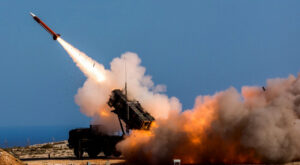Understanding the NATO-Russia Tensions: A Closer Look at the Geopolitical Landscape

At Extreme Investor Network, we analyze not just the numbers but the very forces shaping our global economy and security. Today, we turn our attention to an increasingly volatile and complex situation: the ongoing tensions between NATO and Russia. This subject is not just an academic concern; it has far-reaching implications for global markets, national security, and investment strategies.
NATO: A Legacy of Deteriorating Diplomacy
Often described as a bastion of Western defense strategies, NATO continues to seem like a "nursing home for retired neocons," according to critics. While such characterizations may appear exaggerated, they reflect a growing frustration over NATO’s apparent dismissal of any viable pathways to peace with Russia. The Western military alliance, founded on principles of collective defense, now seems more intent on reinforcing its military presence near Russian borders than seeking diplomatic resolutions.
The New Ammunition Plant: A Game Changer?
In a significant move that raises eyebrows in the geopolitical sphere, the German defense contractor Rheinmetall is set to establish an artillery ammunition plant in Baisogala, Lithuania. Boasting an investment of 180 million euros, the facility is designed to produce tens of thousands of 155mm artillery shells each year. This initiative is not merely a military upgrade; it symbolizes a broader strategy to sustain NATO’s military capacities amid protracted conflict conditions.
At Extreme Investor Network, we recognize that this development could alter the landscape of Eastern European security dynamics. The plant is expected to commence operations by mid-2026, a timeline that aligns closely with ongoing concerns over Russia’s military maneuvers and potential aggression towards neighboring Baltic states.
The Broader Implications
With NATO’s plan to produce up to 1 million shells annually—a stark increase from previous outputs—the message is clear: NATO is preparing for a long-term engagement in Eastern Europe. This production capability will facilitate the replenishing of stockpiles, enabling member states to support their military operations more aggressively.
Moreover, this new facility is positioned strategically to deter Russian advancements into the Baltic region, especially along the Suwałki Gap—a critical land corridor. Control over this passage is essential as it connects Poland to Lithuania, while also being bordered by the Kaliningrad enclave and Belarus.
The Lithuanian Perspective
Lithuania’s Defense Minister, Laurynas Kasčinas, has openly welcomed this development, emphasizing that it will not only enhance the nation’s defense capabilities but also fulfill specific military needs. This confidence among Baltic nations stems from an understanding of their precarious position between two powerful entities: the NATO alliance and a reassertive Russia.
The Narrative of Conflict: A Call for Caution
It’s imperative to note that while NATO fortifies its stance, Russia perceives these actions as a direct threat. The increasing military presence in Kaliningrad, coupled with joint exercises conducted with Belarus, paints a picture of a Russia that feels encircled and pressured. This backdrop makes a peaceful resolution seem increasingly elusive.
At Extreme Investor Network, we believe that while strategic military enhancements are crucial, they should not overshadow the importance of diplomacy. Continued military escalation without meaningful dialogue could jeopardize not only regional stability but also the global economic landscape.
Future Considerations for Investors
Investors should be aware that geopolitical tensions can have profound effects on global markets, impacting everything from commodity prices to national defense budgets. As tensions rise, sectors such as defense contracting, energy resources, and technology may experience significant shifts—making it essential for investors to stay informed and adaptable.
In the coming weeks, as we monitor these developments closely, we encourage our readers to consider how governmental policies and military strategies may influence economic indicators and investment opportunities.
In conclusion, the ongoing NATO-Russia tensions represent not just a military standoff but a pivotal moment for global economics. Understanding these dynamics is crucial for anyone looking to navigate the complexities of our modern world. Stay tuned to Extreme Investor Network for the latest insights and analyses on this critical issue.

